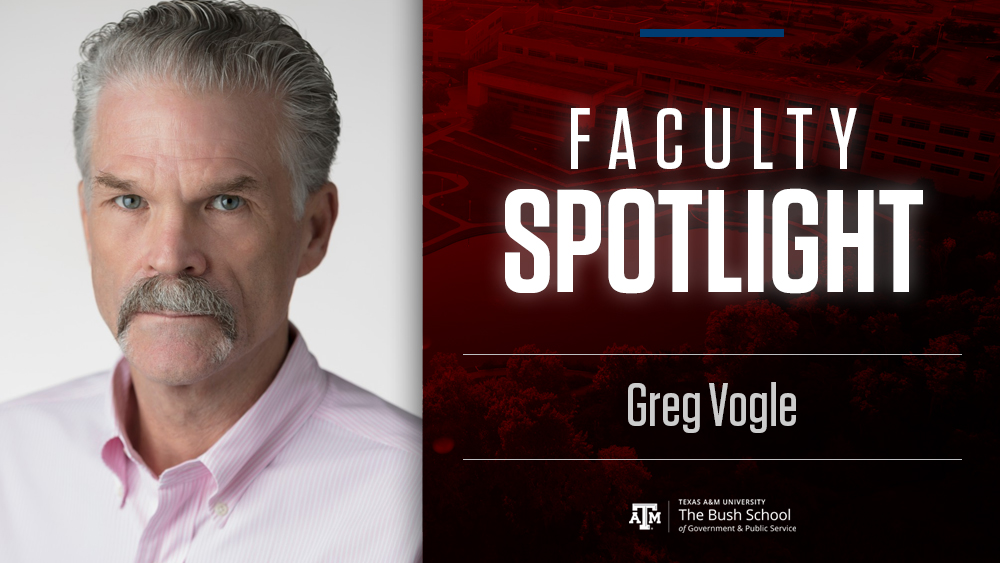
Greg Vogle joined the Intelligence Studies program at the Bush School after spending the majority of his career in the CIA. He talks about his new career turn and plans to teach a course on covert action.
What attracted you to come teach at the Bush School?
Right after I retired, I had the opportunity to speak with students and the faculty here. I was immensely impressed by the caliber of young people here that are going forward to obtain their graduate degrees, and also I was tremendously impressed by the Bush School—what it stands for, what it’s all about—service above self, service to the nation. It really renews my faith in the future of our country. When I was given the opportunity to come here and contribute to the future leaders of the United States, I jumped right on board.
What has been your favorite aspect of working and teaching here so far?
Interacting with the students here—that’s the secret sauce for me. Having the opportunity to interface with those who want to serve our nation and offer them a little help, advice, and scar tissue that I’ve acquired over a lifetime of service. It’s all about watching them go forward and do the things that need to be done to “pay rent” for this country. If you’re asking me what really gets me fired up to get out of the bed in the morning and roll in here, it’s the students.
How does your work outside of academia inform your research and teaching?
This is my first experience in academia. I spent a little over thirty years in the Central Intelligence Agency, and before that, I spent five years in the Marine Corps. As a professor of the practice, that experience is the foundation for my entrance into academia and my entrance into the Bush School.
What project are you currently working on?
Right now, I’m focusing on developing the syllabus for a covert action class that will be offered in the spring semester here at the Bush School.
It’s basically a review of covert action since 1947 with a historical aspect to it, including the OSS and how that developed into the CIA after the National Security Act was signed. It will also examine how covert action, one of the foundational elements of the Agency, has impacted national security from 1947 up to the present day, been implemented both for good and for bad, and continues to influence policymakers’ decisions. We’ll be covering every administration since 1947, starting with President Truman up till today, and we’ll cover all aspects of how covert action has been utilized in the past and how covert action may be utilized in the future.
What are you looking forward to the most about your future at the Bush School?
My days of running around the field are somewhat limited. I probably could do it if I had to do it, but now I think I’m in a stage where I’m able to tell the younger generation of potential intelligence officers, “This is the way that I see things. I can offer you up ideas, offer you up experiences, offer you up things that maybe will help you make decisions. When you’re in a situation where you may be faced with some of the things that I was faced with, you have a voice of experience and different views on a problem to help make the right decision.”
